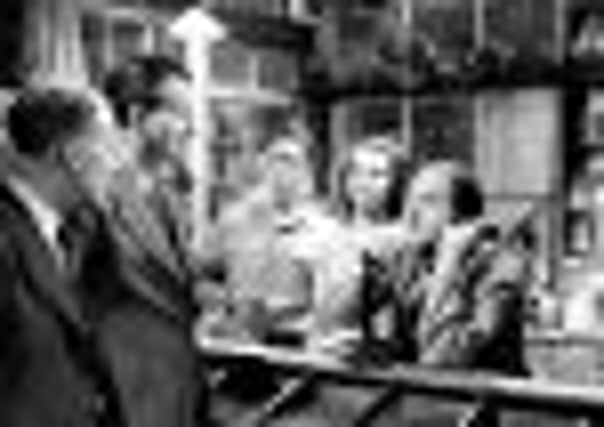Cinemas showing the best of British
This article contains affiliate links. We may earn a small commission on items purchased through this article, but that does not affect our editorial judgement.


Celebrating classic British films, the season opens with a newly restored print of director Henry Cornelius’ 1949 comedy Passport to Pimlico, starring Stanley Holloway, Margaret Rutherford and Hermione Baddeley.
Inspired by a real-life incident during the Second World War, in which the maternity ward of Ottawa Civic Hospital was temporarily declared a part of Holland by the Canadian government to allow Princess Margriet of the Netherlands to be born there and retain her right to the throne, Passport To Pimlico tells the story of what happens when an unexploded Second World War bomb is accidentally detonated in Pimlico, London, revealing a treasure trove and documents that show the area to be part of Burgundy, France and thus, foreign territory.
Advertisement
Hide AdAs the British Government attempt to regain control by setting up border controls and cutting off services to the area, the new Burgundians prepare to fight for their identity.


Veteran actress Barbara Murray was at the start of her career when she landed the role of Shirley Pemberton, daughter of Stanley Holloway’s protagonist, in the movie.
The 82-year-old recalls that working with Cornelius proved a baptism of fire: “The problem was that Henry Cornelius was what we’d now call a fussy perfectionist. The film was supposed to take six weeks and had a slot in the studios. Whiskey Galore!, I think, was in the studio first, and while that was in the studio we were supposed to be on location, and when Whiskey Galore! went on location up in Scotland, we came into the studio. And then Kind Hearts And Coronets was off on location too. It was all dovetailed. But Passport took six months to make. The rows, I can’t tell you. I think they thought it was a bum film and one felt apologetic for it after all the problems.”
Cornelius, reflects Murray, was not an easy man with whom to get on. “I can’t say I liked him. I remember he got ill on the picture and got taken off, and they brought someone else in, and I blossomed. He got out of his deathbed, damn near, to direct the last scene between Paul Dupuis and myself, but he couldn’t hurt me anymore.”
Murray has other memories of filming on the bomb site in Lambeth where all the location work was done. Laughing she recalls, “There was a railway line that went through the site. For one shot, they panned from the railway line to the barrow boys pushing their barrows and shouting and carrying right up to camera, serving potatoes or something hot. He’d got the whole thing – the train went through, the barrow boys came through, but there was no steam coming off the potatoes. So he called cut and wanted to go again. Producer Michael Balcon went spare.”


Not that everyone minded the delays.
“We had all those top-flight character actors. Stanley Holloway, John Slater, Hermione Baddeley, Margaret Rutherford... you name them. They were all on six-week contracts and it went for six months. They made a fortune and were deliriously happy,” laughs Murray.
Advertisement
Hide AdHowever, shooting in London just a few years after the end of the Blitz was also very ambitious.
“London was a huge bomb site. Nobody had anywhere to live. Housing of any kind was at a premium and along came our set boys and put up a whole village. Of course people didn’t see behind them – they were only facades, but it looked like proper buildings. They were rioting. We had to have barbed wire all around and escorts to take us in and out.”


Advertisement
Hide AdDespite all the drawbacks, Passport To Pimlico remains one of the best-loved of the Ealing comedies. “I was amazed,” confesses the star. “I remember going into the Odeon, Leicester Square, where it opened. It was the tail end of the previous screening and the cinema was absolutely rocking. I couldn’t believe it. The next day it was this huge hit.
“I’m delighted it’s done so well, but I’m surprised modern audiences get anything from it. It is a wonderful document of the state of mind of the British people after the war was won. We had clothes rationing, food rationing, shortages of every possible kind... you didn’t have anything. And there were two terrible winters, in 1946/47 and 1947/48. It was a big freeze and nobody had any coal.”
Wryly, she adds, “You couldn’t help but say to yourself, ‘This is what happens when you win the war, is it?’ ”
The other films in the season are Hobson’s Choice, Quatermass And The Pit, The Man Who Fell To Earth and The Plague Of The Zombies.
Passport To Pimlico screens next Tuesday at Cineworld ( www.cineworld.co.uk) and Cameo ( www.picturehouses.co.uk)